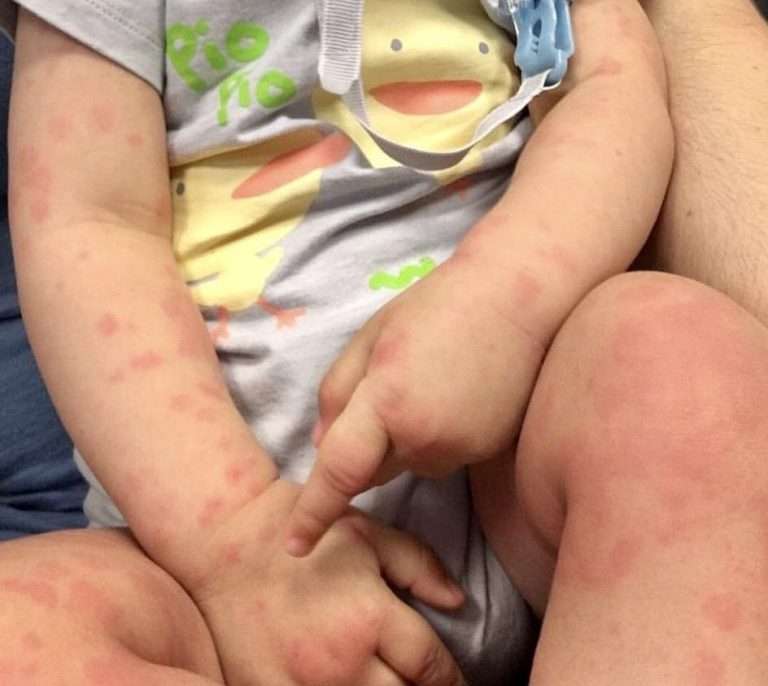Are you itchy? Do you have hives? Is it a food? Is it your skin?
Learn about hives with us!
“When I went to the emergency room with my terrible case of hives, the emergency room doctor told me I must be allergic to something. Please tell me which food is causing my hives so I can stop eating it. What medicines can you give me to treat the itching that doesn’t make me so sleepy like Benadryl?”
We frequently see cases like this in our daily practice. This patient was very frustrated with having chronic hives, or chronic idiopathic/spontaneous urticaria for 3 months. We took an extensive history, asking about new medications that she may have started taking prior to the urticaria starting. We also asked about any insect sting that may have caused the hives to come out. Nothing in her history suggested any potential cause of the hives. During her visit we also did skin testing which showed she is not allergic to any foods. As I expected, she did not have any allergies: there was NO EXTERNAL cause to her urticaria or hives.
So, what is causing her hives?
It’s important to know that there has been multiple studies reported in the literature regarding causes of urticaria presenting to an emergency room. The results are consistent. About one third of the time there is no allergic cause for the urticaria. It seems hard to believe, but it is true. The other two thirds of urticaria or hives caused by an allergy are a combination of food, insect stings, and medications (e.g. antibiotics or aspirin/Motrin type products).
We know that most ALLERGIC causes of hives result in the hives coming out within a few minutes to an hour of the exposure. For example, if someone is allergic to shrimp, they will break out within an hour (typically within minutes) of eating shrimp. One important exception is aspirin and ibuprofen type medications. These may cause hives that occur hours after taking the medication.
The bottom line is: NOT ALL HIVES ARE A SIGN OF ALLERGY TO AN EXTERNAL FACTOR such as a food.
 Incidentally, many researchers are starting to refer to chronic idiopathic urticaria as chronic “spontaneous” urticaria. I agree with trying to change the terminology. “Spontaneous,” I think, is a better descriptive word of the problem (idiopathic is a medical term that means we don’t know what is causing the problem). In fact, we do know that chronic idiopathic/spontaneous urticaria is mainly caused by unstable histamine cells that reside in the skin. These unstable cells spontaneously burst open and release chemicals such as histamine that cause the hives and the severe itching.
Incidentally, many researchers are starting to refer to chronic idiopathic urticaria as chronic “spontaneous” urticaria. I agree with trying to change the terminology. “Spontaneous,” I think, is a better descriptive word of the problem (idiopathic is a medical term that means we don’t know what is causing the problem). In fact, we do know that chronic idiopathic/spontaneous urticaria is mainly caused by unstable histamine cells that reside in the skin. These unstable cells spontaneously burst open and release chemicals such as histamine that cause the hives and the severe itching.
How do we treat this terrible problem?
We usually are quite successful treating this problem with non-sedating antihistamines such as Claritin or Allegra, but using higher than the recommended dosages (under medical supervision, of course). Typically this works very well and doesn’t make the patient sleepy. Sometimes we have to add other medications such as H2 blockers (acid reflux medications that have antihistamine properties) and other anti-allergic type medications. When this is not successful, we will use a drug called Omalizumab. This is an injectable drug which is quite effective in controlling hives. In any case, the vast majority of our patients do very well in the treatment of the urticaria, with very little side effects of the medications. And the good news is that almost every patient will get a break from their urticaria after a few months. That is, most urticaria is not truly chronic – some people can go years between bouts of urticaria.
Written by Dr. Neil Gershman MD



